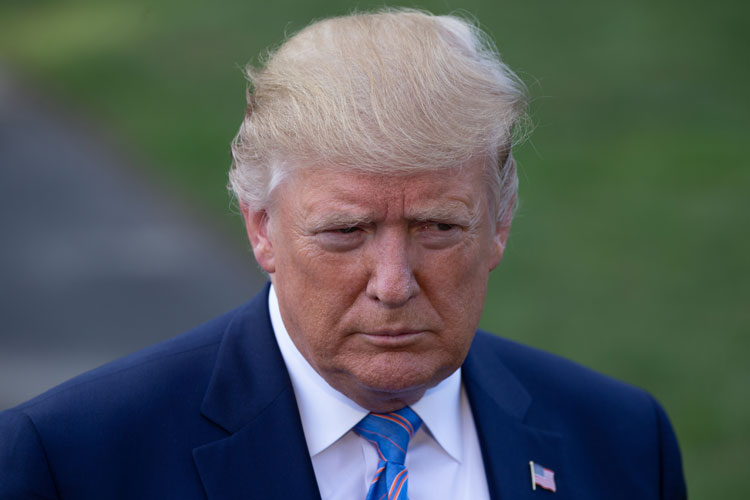Can Trump send military to states to stop violent protests? This law likely allows it

President Donald Trump. Photo from Shutterstock.com.
President Donald Trump said Monday he would use the military to stop violent protests in states where governors refuse to take actions needed to protect lives and property.
If Trump followed through on the threat, he would likely have the authority to do so under the Insurrection Act of 1807, according to legal experts interviewed by the Washington Post, Reuters and the Associated Press.
The Insurrection Act allows a president to use the militia to suppress an insurrection or violence that hinders the execution of laws or impedes justice, the experts say. It trumps the Posse Comitatus Act, which bars the use of federal troops for domestic law enforcement without statutory authorization, University of Texas law professor Stephen Vladeck explained on Twitter and in an interview with the Washington Post.
National Guard troops are already being used in some states, but they are under control of the governors, Vladeck says. Trump could federalize the National Guard or send active duty military troops.
The Insurrection Act was most recently invoked in 1992, when California’s governor sought help to quell rioting after four Los Angeles police officers were acquitted in the beating of Rodney King. The law was also used to send the military into Little Rock, Arkansas, to desegregate schools in the 1950s.
A state’s governor does not have to request assistance for a president to act, if governors are not protecting the state, Vladeck said.
Any legal challenge to Trump’s authority under the law is unlikely to succeed, University of Texas law professor Robert Chesney told Reuters.
“The law, for all practical purposes, leaves this to the president with very little judicial review with any teeth,” he said.
Yale law professor Eugene Fidell, however, expressed a contrary view.
“Absent a request from the legislature or the governor of a state, I think the only way the power can be lawfully exercised is if there were an impeding of federal authority,” he told the Associated Press.
He cited the desegregation example, in which the state was defying a federal court order.



